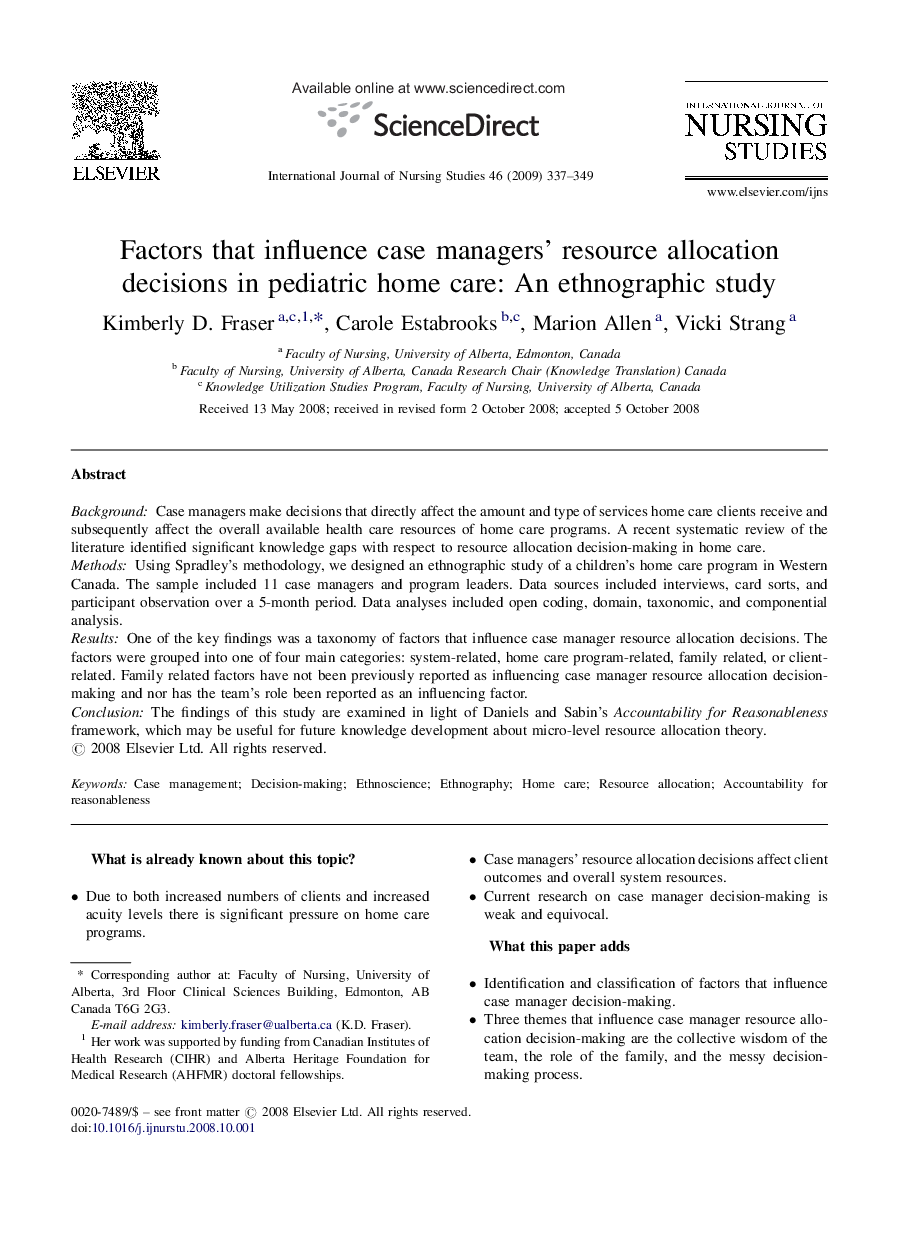| Article ID | Journal | Published Year | Pages | File Type |
|---|---|---|---|---|
| 1076652 | International Journal of Nursing Studies | 2009 | 13 Pages |
BackgroundCase managers make decisions that directly affect the amount and type of services home care clients receive and subsequently affect the overall available health care resources of home care programs. A recent systematic review of the literature identified significant knowledge gaps with respect to resource allocation decision-making in home care.MethodsUsing Spradley's methodology, we designed an ethnographic study of a children's home care program in Western Canada. The sample included 11 case managers and program leaders. Data sources included interviews, card sorts, and participant observation over a 5-month period. Data analyses included open coding, domain, taxonomic, and componential analysis.ResultsOne of the key findings was a taxonomy of factors that influence case manager resource allocation decisions. The factors were grouped into one of four main categories: system-related, home care program-related, family related, or client-related. Family related factors have not been previously reported as influencing case manager resource allocation decision-making and nor has the team's role been reported as an influencing factor.ConclusionThe findings of this study are examined in light of Daniels and Sabin's Accountability for Reasonableness framework, which may be useful for future knowledge development about micro-level resource allocation theory.
